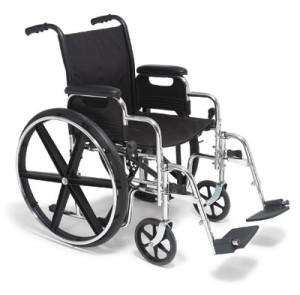
Senior Housing Contracts – Reading the Fine Print
 First, plan ahead and know that every senior has a 66% chance of needing assisted living or skilled nursing in the future.
First, plan ahead and know that every senior has a 66% chance of needing assisted living or skilled nursing in the future.
Second, do not rely on the verbal promises of senior housing sales people. Read the agreement for services or contract. If a senior does not understand it, they should ask a savvy friend or hire an attorney to help them. The majority of retirement counselors are honest and passionate about serving seniors. A few will say “anything” to get a senior to move in immediately.
How do you know if a retirement community will really take care of you or not in your future? Here are some important questions to ask EVERY senior housing community BEFORE you move from your home:
What happens when a senior needs a higher level of care like assisted living or skilled nursing?
- Will the senior be asked to leave the retirement community?
- Do they offer a higher level of care on the same campus? How much does that cost per month?
- Does an outside company bring caregivers into the senior’s apartment home to provide care? What is the hourly cost? What is that company’s reputation?
What happens if a senior falls in the middle of the night?
- Is there an emergency call system? Who responds to it? Are they medically trained?
- What happens if a senior falls and he or she can’t hit the emergency button? Will they will be found in a timely fashion?
- Is there a daily check in system?
What happens if a senior outlives their resources?
- Will they kick you out? A senior provider kicked out a senior in Houston a week ago.
- Is there a Good Samaritan Fund or Foundation to help a senior so that he or she won’t get kicked out? Is there a limit of how many seniors can be utilizing the fund at any one time?
- Or is there just a flat guarantee of care in writing that a senior will never be kicked out unless they divest their own funds on purpose by giving gifts to their children?
What else should a senior ask in order to make a good move?
These are just some of the intelligent questions that seniors should ask a senior housing provider. Other tips and advice can be found in Diane Masson’s new book, “Your Senior Housing Options.” She has recently been interviewed for TV, radio and newspaper features. Diane Masson has worked in all types of senior housing in her 17-year career. Her first book, “Senior Housing Marketing – How to Increase Your Occupancy and Stay Full,” is being utilized by senior housing professionals around the world.

Seniors and Sales People Wearing Masks
 Almost everyone wears a mask out in public. It can be exhausting to hide behind a fake exterior and pretend we have it all together. I meet seniors and sales people everyday that seemed poised and polished to the world and yet they are terrified inside.
Almost everyone wears a mask out in public. It can be exhausting to hide behind a fake exterior and pretend we have it all together. I meet seniors and sales people everyday that seemed poised and polished to the world and yet they are terrified inside.
Many seniors and sales people have lost the ability to be real and authentic. They have worked hard to create the illusion that everything is fine, because they fear showing their vulnerability.
Seniors walk into retirement communities everyday announcing that he or she is fine and “not ready yet” to make a move to senior housing. If you could pull off the mask, you might see a frightened senior who knows their memory is slipping, had a recent fender bender in the car or is just extremely lonely. That’s why they are exploring senior housing options.
Is this you?
Sale people may be dealing with an angry teenage daughter, a new baby, or ailing parents. They have to leave their breaking heart in the car and arrive for work with a mask of happiness.
Is this you?
Here are the three most common masks:
The I’m Fine Mask: You smile and say that everything is fine when your heart is breaking. It appears that you have it all, but you may feel lost inside. It is safer to hide, because people expect it.
The Performance Mask: You have the “to do” list. You keep up a frantic pace. If you stop performing then you are not worth anything at all. You want to matter and count.
The “I don’t care” Mask: You don’t bother with your looks. You do not seem to care. You are desperate to not be seen. You are certain that others will reject you.
Masks can be exhausting.
I know because I am usually wearing the performance mask. On top of working full time as a regional marketing director at two Continuing Care Retirement Communities:
- I recently wrote a book called, “Your Senior Housing Options.”
- A newspaper interview last week landed me on the front cover of the Laguna Woods Globe.
- A radio interview last week with AM 590 and the California Senior Guide will turn into a broadcast on Sunday, Oct 4th at 11:00 AM.
- Four TV interviews over the last several months are all on my YouTube channel.
My personality has always been driven. I have always increased the occupancy of any senior living community I was working with. I love achieving goals. It’s also important to create balance in my life so I don’t burn out. I just started a women’s bible study called, “Keeping the Balance.” It is already changing my life and helping me recognize the real me, so I can be authentic with you. Today, I had some me time. What a treat. Tonight I will be dancing with my husband at Oktoberfest.
Balance in life is important. The opposite of wearing a mask can be seniors and sales people who over share. They want to dump all their problems on you and it may not be at an appropriate time.
When my mom was in in later stages of dementia, her mask of pretending to be okay was gone. She just said whatever was on her mind.
How about you? What’s your mask? Have you found your balance?
Diane Masson has 19 years experience, both personally and professionally in senior housing. She is an author of two books with 5-star ratings, a weekly blogger and a regional marketing director of two Continuing Care Retirement Communities. Follow her newsletter on Tips2Seniors.com or Tips2Seniors on Facebook.

Denying Seniors Admission Based on Health?
 If an aging senior has a new health diagnosis or is getting frail, what might happen in his or her future?
If an aging senior has a new health diagnosis or is getting frail, what might happen in his or her future?
Many seniors don’t realize that senior living communities often have minimum health requirements. If you have a diagnosis of a progressive disease, you may not qualify for certain types of housing. If you are in the later stages of Alzheimer’s, you may only qualify for memory care or skilled nursing care.
It is illegal for a senior housing care provider to let you move in and not be able to provide for your needs. Many seniors are stunned when they arrive at an independent senior living community to be told they have bypassed an independent living setting and that an assisted living community would provide a more appropriate level of care for them.
The conversation that a retirement counselor in a senior housing community dreads most is “the talk” with a future resident. As I write this, one Continuing Care Retirement Community (CCRC) that I work with had to turn down two senior applicants in the last six weeks. One applicant had a diagnosis of dementia and could not manage alone, and the other was too frail for independent living. Even though those seniors thought they were fine to move into independent living, they only qualified for assisted living.
Other CCRCs I worked with in the past would deny people admittance if they had ever had cancer, Parkinson’s, Alzheimer’s, multiple sclerosis, or anything that would send them quickly into a higher level of care for an extended period of time. How can they do this, you might ask? Well, it is a contract for services, and as long as they are consistent with all applicants, this is considered consistent with fair housing practices.
The proceeding has been excerpt from my new book, “Your Senior Housing Options.”
Have you ever heard of denying a senior (in a wheelchair) admittance into a retirement community? A senior prospect (in a wheelchair) said it happened to them at several communities. How can this be?
“Your Senior Housing Options,” has a simplistic title, but what’s inside this new book can save a you months of research time. Hear Diane Masson’s interview of how her mother and in-law’s faced the pivotal decision to plan ahead or wait until a crisis. Learn the pitfalls from transitioning from your home to senior housing. Understand what questions to ask, insider tips and dirty secrets revealed. For weekly tips join at: Www.Tips2Seniors.com
Diane Masson has worked in senior housing for 17 years and is the regional marketing director for two debt-free Continuing Care Retirement Communities in Southern CA (Freedom Village in Lake Forest and The Village in Hemet). Her first book “Senior Housing Marketing – How to Increase Your Occupancy and Stay Full,” is being utilized by senior housing professionals across the country. Both her first book and second book, “Your Senior Housing Options,” have a 5-star rating on Amazon.com.
7 Deadly Sins of Searching for Senior Housing
Smart seniors plan ahead and research their options. Don’t get caught in a health care crisis. Once you are in crisis mode, your options may be limited. These seven deadly sins are a summation of my work with thousands of seniors during the course of my career.
Do you agree with these 7 deadly sins in the video? Do they apply for home care, assisted living, memory care, skilled nursing and Continuing Care Retirement Communities?
Your Senior Housing Options,” has a simplistic title, but what’s inside this new book can save a you months of research time. Hear Diane Masson’s interview of how her mother and in-law’s faced the pivotal decision to plan ahead or wait until a crisis. Learn the pitfalls from transitioning from your home to senior housing. Understand what questions to ask, insider tips and dirty secrets revealed. For weekly tips join at: Www.Tips2Seniors.com
Diane Masson has worked in senior housing for 17 years and is the regional marketing director for two debt-free Continuing Care Retirement Communities in Southern CA (Freedom Village in Lake Forest and The Village in Hemet). Her first book “Senior Housing Marketing – How to Increase Your Occupancy and Stay Full,” is being utilized by senior housing professionals across the country. Both her first book and second book, “Your Senior Housing Options,” have a 5-star rating on Amazon.com.
